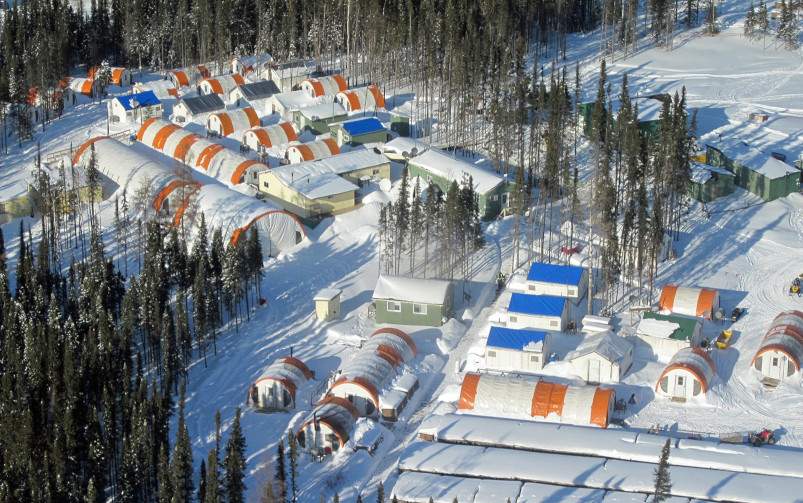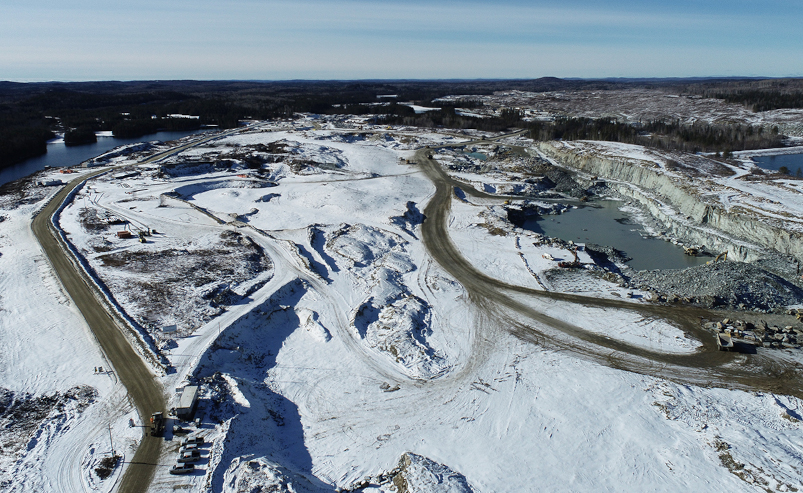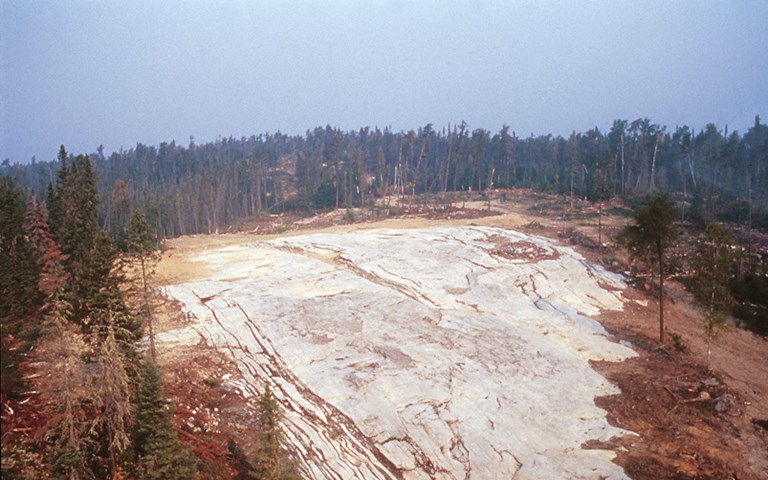If constructed, Avalon's lithium processing plant would accept concentrate from its Separation Rapids lithium deposit in Kenora, Ontario (pictured here). Courtesy of Avalon Advanced Materials.
(Like what you’re reading? Get our weekly recap delivered straight to your inbox each Friday.)
Happy Good Friday everyone! Welcome back to your weekly mining news recap, where we catch you up on some of the news you may have missed. This week’s headlines include advanced tools for exploration, First Cobalt securing a buyer for its cobalt sulfate production and a rising trend of private placements in the mining industry.
Battery electric vehicles (BEVs) are becoming mainstream in the mining industry, with some mining companies considering abandoning the use of diesel equipment entirely. Upgrades, such as placing the charger on the vehicle, have been made to allow BEVs to work in mines without significant infrastructure changes, but the higher costs might still make some miners balk at adding them to their fleets.
Discovery rates are declining and new mineral deposits are being located further underground, so mineral explorers have their work cut out for them trying to find the next major deposit. However, developments in geophysical imaging tools are helping in the hunt. Induced polarization survey systems, electromagnetic survey systems and handheld geochemical imagine scanners are some of the evolving technologies making exploration easier.
Teck Resources pled guilty to two charges of discharging pollutants into the Elk Valley watershed and was fined $60 million, the largest fine ever given under the federal Fisheries Act. Teck was charged back in 2012, when the impact of selenium discharge from the company’s steelmaking coal operations in the area was first discovered. Teck has since constructed two water treatment facilities in the region, with two more on the way this year, is researching other methods to prevent further discharge and improve the water quality near its coal mining operations in southeastern British Columbia.
Kirkland Lake Gold has released an updated life of mine plan for its Detour Lake gold mine in northern Ontario over a year following its $4.9 billion purchase of Detour Gold. The new plan adds two more years of production to the mine, and production is expected to increase to 800,000 ounces per year in 2025. According to Kirkland Lake president and CEO Tony Makuch, the mine has the potential to become “one of the largest and most profitable gold mines in the world.”
First Cobalt has signed a long-term offtake agreement with Stratton Metal Resources to sell 100 per cent of the annual cobalt sulfate production from its Ontario refinery over the next five years. The flexible nature of the agreement will allow First Cobalt to enter into further offtake contracts with equipment manufacturers and their suppliers. According to the company, it expects to begin refinery production early next year.
Newmont announced that it has taken out a US$3-billion credit facility directly tied to its adherence to environmental, social and governance practices. Under the facility, Newmont will receive pricing adjustments to the amounts withdrawn from the facility based on its sustainability performance criteria determined by independent ratings published by MSCI and S&P Global. Newmont president and CEO Tom Palmer says this is a way of holding the company accountable for delivering on its sustainable mining promises.
Swedish mining equipment manufacturer Epiroc is acquiring Meglab, a manufacturer focused on electrification and telecommunications infrastructure solutions based in Val-D’Or, Quebec. According to Epiroc president and CEO Helena Hedblom, the acquisition will strengthen Epiroc’s ability to provide infrastructure for mines transitioning to BEVs. Meglab will become a part of Epiroc’s Parts & Services division and will continue operating in Val-D’Or.
A new report funded by the federal government says more than half of Inuit women working at mine sites in the northern territories have been sexually harassed at work, as reported by The Globe and Mail. According to the survey conducted by Pauktuutit Inuit Women of Canada, the most frequent forms of harassment included sexual comments, jokes, unwanted touching and emotional abuse, and that the women felt the most vulnerable working in housekeeping and janitorial positions that placed them in private areas. The survey called for changes such as stricter enforcement of sexual harassment policies, increased hiring of Inuit women in managerial positions and Inuit-specific mental health services.
The Fort William First Nation has signed a letter of intent with Avalon Advanced Minerals to support the location and eventual construction of a lithium processing plant on its reserve land, as reported by Northern Ontario Business. Avalon announced in November that it had partnered with Rock Tech Lithium to look into the potential of building a plant near Thunder Bay, which would accept concentrates from Avalon’s Separation Rapids deposit and Rock Tech’s Georgia Lake deposit in Ontario.
Private placement financings in the mining industry took off in 2020 and have thus far continued to rise in 2021, as reported by The Northern Miner. According to a report from TMX Group, the mining industry raised $4.8 billion in private placements in 2020, up from $3.4 billion in 2019. The industry is on pace to surpass that total in 2021, raising $1.1 billion in private placements in the first two months of 2021 alone. Experts say the increase could be a result of retail and generalist investors leaving the industry and being replaced by specialist investors.
If you’ve got feedback, you can always reach us at editor@cim.org. If you’ve got something to add, why not join the conversation at our Facebook, Twitter or LinkedIn pages? Like your recap with a few more gifs? Check out our stories on our Instagram.
Remember to stay safe, keep your distance, wash your hands and have a great holiday weekend.




